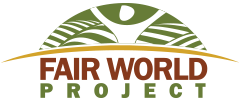
| FOR IMMEDIATE RELEASE September 8th, 2016 | CONTACT: Ryan Zinn, 907-947-6046 Email: [email protected] |
Fair World Project Releases Statement on US, China Formal Sign-On to Paris Climate Agreement
Leading Consumer Advocacy Group Calls for Support for Small-Scale Farmers and Fair Trade
Portland, OR – Fair World Project (FWP), a campaign of the Organic Consumers Association, the nation’s largest network of green and ethical consumers, welcomes the United States and China’s ratification of the Paris Climate Agreement. Meeting the Agreement’s emissions reduction targets and adaption goals require political will and significant institutional commitment, as the United States and China jointly are responsible for approximately 40% of global emissions.
As both countries are top producers of the world’s food, a key element to mitigate the consequences of, and adapt to severe climate change will be addressing the conventional global food system. Global industrial agriculture is a key driver in the generation of greenhouse gases (GHG), accounting for 30-50% of total emissions worldwide. Chemical fertilizers, pesticides, heavy machinery, monocultures, land change, deforestation, refrigeration, waste and transportation all contribute to a food system that generates significant emissions which escalate global climate change and further perpetuate an inequitable and unhealthy food system. Yet despite the important role conventional agriculture plays in causing the climate crisis, and the potential of alternative food systems to abate it, no mention of agriculture or the food system was made during the ratification announcement.
“There are over 500 million smallholder family farms in the world,” said Ryan Zinn, Political Director of Fair World Project. “Small farmers, practicing organic and agro-ecological farming practices not only feed the majority of the world with less than one quarter of global farmland, but are actively sequestering carbon with ecological farming practices.”
Despite the scalable ability of small-scale farmers and pastoralists to feed the world’s growing population through “cool farming” practices, they are vulnerable to unfair trade agreements, collapsing financial markets, the global expansion of “bio” or agricultural fuels, land grabs, and destabilizing speculation in the food market, among other threats. Current prevailing policies and practices in trade, land use, energy consumption, and seed patent laws favor large-scale agribusinesses that catalyze climate change, while making it more difficult for small-scale sustainable farmers to stay on endemic land. Without safeguards and support for a “cool farming” food system, the global food supply is put at risk and efforts to combat the climate crisis are severely compromised.
“The Obama Administration’s ratification of the Paris Agreement, while it simultaneously advanced the Trans-Pacific Partnership (TPP)—a massive trade deal involving 12 countries along the Pacific Rim—presents a troubling contradiction,” said Fair World Project Campaign Director, Kerstin Lindgren. “The TPP represents a clear obstacle to climate progress and if President Obama is serious about his commitment to addressing climate chaos, he needs to drop his support of the Trans-Pacific Partnership and advocate for a fair and ecological system of global trade.”
The United States government can play a powerful role in combating climate change by supporting regenerative agriculture, and work toward a just economy by prioritizing small-scale farmers. However, to be truly successful and equitable, climate programs at home and abroad must ensure fair prices for farmers, equitable access to land, credit and seeds, as well as institutional safeguards, including reforming unfair trade agreements. Fair World Project congratulates the Obama administration on the milestone of ratification of the Paris Agreement and hopes that this is merely the first step in a serious commitment to tackling the reform that will also include supporting small-scale farmers and denouncing unfair trade agreements.
###
Fair World Project (FWP) is a non-profit organization whose mission is to protect the use of the term “fair trade” in the marketplace, expand markets for authentic fair trade, educate consumers about key issues in trade and agriculture, advocate for policies leading to a just economy, and facilitate collaborative relationships to create true system change. FWP publishes a bi-annual publication entitled For a Better World.
For more information, visit: http://www.fairworldproject.org.

